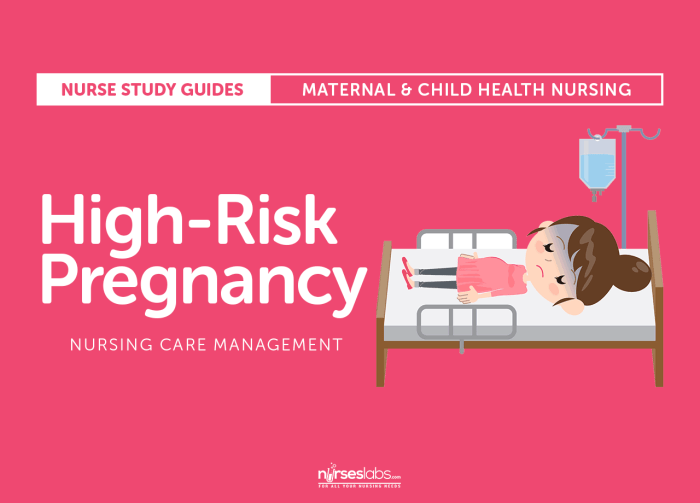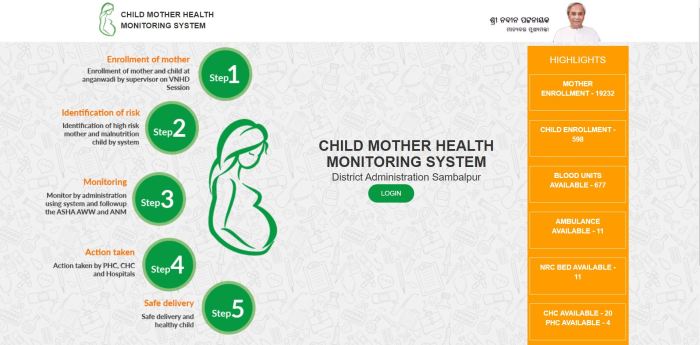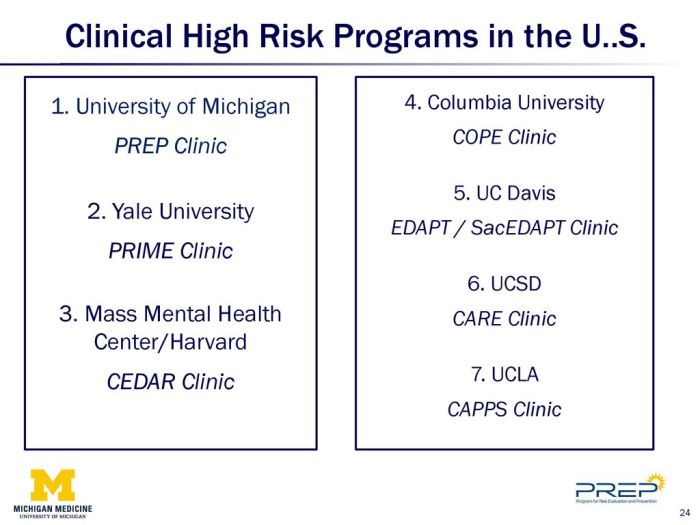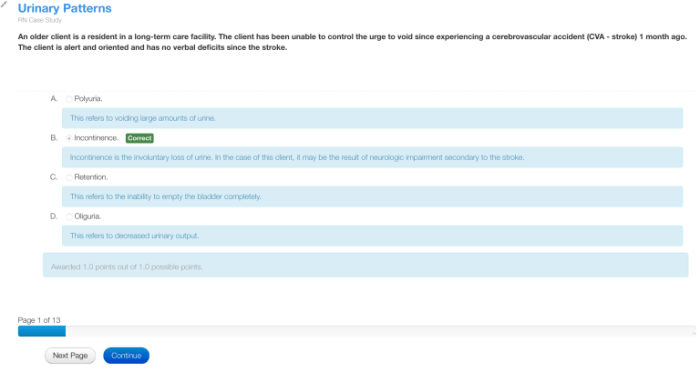Nursing care high risk mother edapt takes center stage as a crucial aspect of ensuring optimal pregnancy outcomes for both the mother and the baby. This comprehensive approach involves assessing, monitoring, and managing risk factors, providing education and support, and fostering collaboration among healthcare providers and families.
By embracing evidence-based practices and adhering to ethical considerations, nurses play a pivotal role in safeguarding the well-being of high-risk mothers and their newborns.
The multifaceted nature of nursing care high risk mother edapt demands a holistic understanding of the physical, emotional, and social challenges faced by these mothers. Nurses serve as advocates, educators, and caregivers, empowering mothers with knowledge and support throughout their high-risk pregnancies.
Risk Factors for High-Risk Mothers

High-risk pregnancies are those that have a greater chance of complications for the mother and/or baby. There are many risk factors that can contribute to a high-risk pregnancy, including:
- Medical conditions, such as high blood pressure, diabetes, and heart disease
- Lifestyle factors, such as smoking, drinking alcohol, and using drugs
- Social determinants, such as poverty, lack of access to healthcare, and violence
Pregnant women who have any of these risk factors should be closely monitored by their healthcare provider to ensure that they and their baby are healthy.
Medical Conditions
Medical conditions that can contribute to a high-risk pregnancy include:
- High blood pressure
- Diabetes
- Heart disease
- Kidney disease
- Thyroid disease
- Autoimmune disorders
- Chronic infections
These conditions can increase the risk of complications during pregnancy, such as premature birth, low birth weight, and birth defects.
Lifestyle Factors
Lifestyle factors that can contribute to a high-risk pregnancy include:
- Smoking
- Drinking alcohol
- Using drugs
- Poor nutrition
- Lack of exercise
- Obesity
These factors can increase the risk of complications during pregnancy, such as placental abruption, gestational diabetes, and preterm labor.
Social Determinants
Social determinants that can contribute to a high-risk pregnancy include:
- Poverty
- Lack of access to healthcare
- Violence
- Stress
- Racism
These factors can increase the risk of complications during pregnancy, such as low birth weight, preterm birth, and infant mortality.
Nursing Care for High-Risk Mothers
Comprehensive nursing care is crucial for high-risk mothers to ensure optimal health outcomes for both the mother and the baby. Nurses play a vital role in assessing, monitoring, and managing risk factors associated with high-risk pregnancies.
Nurses are responsible for:
- Conducting thorough assessments to identify risk factors and develop individualized care plans.
- Monitoring the mother’s vital signs, fetal heart rate, and uterine activity to detect any deviations from normal.
- Providing education and counseling to the mother about her condition, treatment options, and self-care measures.
- Collaborating with other healthcare professionals to ensure a coordinated approach to care.
- Advocating for the mother’s rights and ensuring her access to quality healthcare.
Education and Support for High-Risk Mothers

High-risk pregnancies necessitate comprehensive patient education and support to ensure optimal outcomes for both the mother and the baby. These initiatives empower mothers with knowledge and coping mechanisms to navigate the challenges associated with their pregnancies.
Educational programs tailored to high-risk mothers provide essential information on topics such as fetal development, nutrition, exercise, medication management, and potential complications. These programs aim to enhance mothers’ understanding of their condition, promote self-care, and reduce anxiety.
Support Groups, Nursing care high risk mother edapt
Support groups offer a safe and supportive environment where high-risk mothers can connect with others who are facing similar experiences. These groups provide emotional support, share practical advice, and foster a sense of community. They can also connect mothers with resources and support services.
Role of Nurses
Nurses play a crucial role in providing information, counseling, and emotional support to high-risk mothers. They assess mothers’ needs, develop individualized care plans, and provide ongoing education and guidance. Nurses also provide emotional support by listening to mothers’ concerns, offering reassurance, and connecting them with appropriate resources.
Collaboration and Communication

Collaboration and effective communication are paramount in high-risk pregnancy care. Nurses play a pivotal role in facilitating seamless communication between healthcare providers, families, and the mother herself.
By fostering open and transparent dialogue, nurses can ensure that all parties are well-informed and actively involved in decision-making. This collaborative approach promotes shared understanding, enhances patient satisfaction, and ultimately improves pregnancy outcomes.
Role of Nurses in Facilitating Communication
Nurses serve as the primary contact point for high-risk mothers and their families. They are responsible for:
- Providing clear and concise information about the mother’s condition and treatment plan
- Answering questions and addressing concerns in a timely and empathetic manner
- Documenting all communication and interactions to ensure continuity of care
li>Encouraging open and honest communication between the mother and healthcare providers
Strategies for Effective Communication
Effective communication in high-risk pregnancy care requires a multi-faceted approach, including:
- Active Listening:Nurses must actively listen to the mother’s concerns, observations, and questions without interrupting or dismissing her feelings.
- Empathy and Understanding:Nurses should approach interactions with empathy and understanding, recognizing the emotional and physical challenges faced by high-risk mothers.
- Shared Decision-Making:Nurses should engage the mother and her family in shared decision-making, providing them with the necessary information and support to make informed choices about their care.
- Use of Plain Language:Nurses should use clear and concise language, avoiding technical jargon and medical terminology that may be confusing to the mother and her family.
- Cultural Sensitivity:Nurses should be mindful of cultural differences and language barriers that may affect communication, and seek assistance from interpreters or cultural mediators when necessary.
Ethical Considerations: Nursing Care High Risk Mother Edapt

Ethical considerations play a pivotal role in nursing care for high-risk mothers. Nurses must navigate complex issues related to informed consent, patient autonomy, and resource allocation, while advocating for the rights and well-being of their patients.
Informed Consent
High-risk mothers have the right to make informed decisions about their care. Nurses must provide clear and comprehensive information about the risks and benefits of all interventions, ensuring that mothers fully understand their options and can make decisions that align with their values and preferences.
Patient Autonomy
Patient autonomy is a fundamental ethical principle that respects the right of individuals to make decisions about their own bodies and healthcare. Nurses must support the autonomy of high-risk mothers, even when their decisions differ from medical recommendations. This may involve exploring alternative options, providing additional information, or facilitating communication with other healthcare professionals.
Resource Allocation
In healthcare settings with limited resources, ethical considerations arise when allocating resources to high-risk mothers. Nurses must advocate for equitable distribution of care, ensuring that mothers with the greatest need receive the necessary interventions. This may involve prioritizing care based on medical urgency, potential outcomes, or social determinants of health.
Advocacy for High-Risk Mothers
Nurses play a crucial role in advocating for the rights and well-being of high-risk mothers. They must speak up for their patients, ensuring that their voices are heard and their needs are met. This may involve providing support, navigating healthcare systems, or challenging policies that disadvantage high-risk mothers.
Research and Evidence-Based Practice

Research and evidence-based practice are crucial in nursing care for high-risk mothers, as they guide decision-making and improve patient outcomes. Evidence-based practice involves using the best available evidence, including research findings, to inform clinical practice.
Numerous studies have demonstrated the positive impact of evidence-based interventions on high-risk pregnancies. For instance, a study published in the Journal of Obstetric, Gynecologic & Neonatal Nursingfound that implementing a standardized protocol for managing pre-eclampsia significantly reduced maternal and fetal complications.
Role of Nurses
Nurses play a vital role in implementing and evaluating evidence-based interventions for high-risk mothers. They are responsible for:
- Staying up-to-date with the latest research findings
- Critically evaluating evidence to determine its relevance and applicability
- Implementing evidence-based interventions into clinical practice
- Monitoring and evaluating the outcomes of evidence-based interventions
Essential FAQs
What are the common risk factors associated with high-risk pregnancies?
Risk factors include advanced maternal age, chronic health conditions (e.g., diabetes, hypertension), multiple pregnancies, previous pregnancy complications, and certain lifestyle factors (e.g., smoking, substance abuse).
How do nurses contribute to the care of high-risk mothers?
Nurses play a vital role in assessing risk factors, providing patient education and support, monitoring fetal well-being, administering medications, and coordinating care plans with other healthcare providers.
Why is collaboration important in nursing care high risk mother edapt?
Collaboration among nurses, physicians, midwives, and other healthcare professionals ensures a comprehensive approach to care, improves communication, and facilitates timely decision-making.
